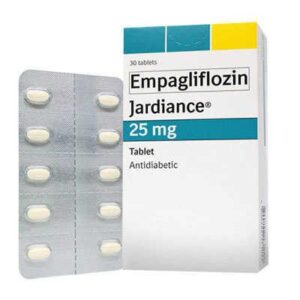EPAGLIFLOZIN
EPAGLIFLOZIN: Epagliflozin is a medication that belongs to a class of drugs known as sodium-glucose co-transporter-2 (SGLT2) inhibitors. It is primarily used for the treatment of type 2 diabetes mellitus.
The mechanism of action of epagliflozin involves inhibiting the SGLT2 protein in the kidneys. SGLT2 is responsible for reabsorbing glucose back into the bloodstream. By inhibiting this protein, epagliflozin prevents the reabsorption of glucose in the kidneys, leading to increased urinary glucose excretion and reduced blood glucose levels. This mechanism helps control blood sugar levels in patients with type 2 diabetes.
The recommended dose of epagliflozin is usually 10 mg once daily, taken orally, with or without food. However, the dosage may vary depending on individual patient factors, such as kidney function and response to the medication. It is important to follow the prescribed dosage and instructions provided by a healthcare professional.
Like any medication, epagliflozin can cause side effects. Common side effects may include urinary tract infections, genital yeast infections, increased urination, urinary urgency, increased thirst, dizziness, low blood pressure, and gastrointestinal symptoms such as nausea, vomiting, and diarrhea. In rare cases, more serious side effects like ketoacidosis (high levels of ketones in the blood), dehydration, and hypoglycemia (low blood sugar) may occur.
It is crucial to consult a healthcare professional before starting epagliflozin or making any changes to the prescribed dosage. They can provide personalized information and guidance based on an individual’s medical history and current medications.

